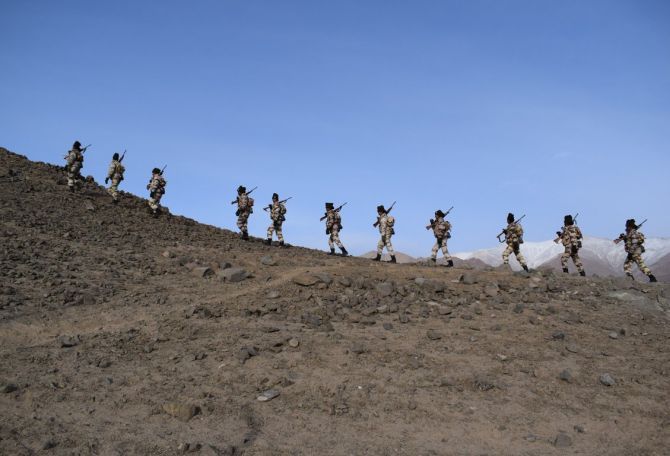
China on Monday asserted that Doklam belongs to it and India should have "learnt lessons" from the stand-off last year, days after India's envoy blamed China for the face-off, saying it happened because Beijing tried to alter the "status quo" in the disputed area.
Reacting to India's Ambassador to China Gautam Bambawale's remarks, Chinese Foreign Ministry spokesperson Hua Chunying said, "Donglong (Doklam) belongs to China because we have historical conventions."
"China's activities there are within our sovereign rights. There is no such thing as changing status quo," she said at a media briefing in Beijing.
"Last year thanks to our concerted efforts and our wisdom we properly resolved this issue. We hope the Indian side could learn some lessons from this and stick to the historical conventions and work with China to ensure the atmosphere in the border areas is conducive for the development of bilateral ties," she said.
The India's envoy in an interview to Hong Kong-based South China Morning Post had blamed China for the stand-off in Doklam saying it happened because Beijing tried to alter the "status quo" which it should not have.
He had said that any change of status quo along the India-China border may lead to another Doklam-like crisis.
He said that though "no change" has taken place in the standoff site at Doklam after it was resolved last year, the PLA may be reinforcing its troops "well behind the sensitive area".
Asked about Bambawale's comments that the 3488-km long Line of Actual Control should be demarcated and delineated, the foreign ministry spokesperson said on the delimitation China's position is clear and consistent.
"The east, middle and western side is yet to be officially demarcated," she said.
"China is committed to resolving the disputes through negotiations. China and India are exploring ways to resolve this territorial dispute through negotiations so that we can arrive at mutually acceptable solution," she said, referring to the boundary talks between the two countries.
The two sides have so far held 20 rounds of boundary talks.
"Pending final solution both sides should work together to maintain peace and tranquillity in the border area," she said.
Hua, however, commended Bambawale's comments that India has no concern about China's rise instead regard it as a motivation and China is not a competitor, rival or a threat but a partner in progress.
"I commend these remarks made by the India ambassador and all these positive remarks. The two countries are growing at fast pace. China and India are each other's important opportunities and to the whole world we present important opportunities," she said.
Both countries also share similar national conditions and development goals as well as common interests.
"We have every reason to be each other's partners. We would like to work with India to enhance political trust, mutually beneficial cooperation under the guidance of the two leaders to achieve common development," she said.
The 73-day standoff over China's attempt to build a road close to India's narrow Chicken Neck area connecting North Eastern states ended in August last year after Chinese troops agreed to halt the road building activities at Doklam in Sikkim Section.











 © 2025
© 2025